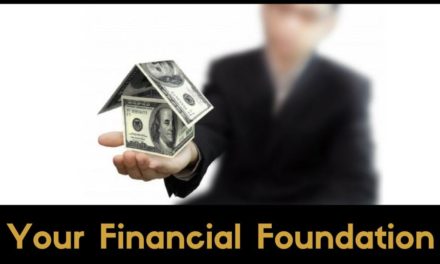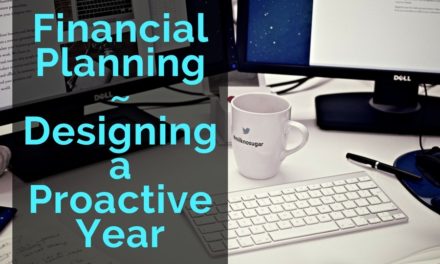Human beings are optimistic creatures. Sure, we run into the occasional Debbie Downer, but deep down, most of us believe everything will work out in the end, and we cling steadfast to that belief.
This has certainly helped many people through a rough patch or two, including myself.
However, I also know this mentality can be incredibly dangerous when it comes to your finances. Your finances won’t magically fix themselves on their own.
You need to play an active role. Most people recognize this but still put off dealing with their finances.
Why take the risk? There are many reasons, but the most common are:
- Lack of time
- Lack of knowledge
- Fear of hearing they do not have enough
After 20 years as a financial advisor, I cannot express how many people have come into my office and said, “I know I should have done this years ago”, or “I am so embarrassed”, or “I really do not have much”. I suspect some of you may have uttered these phrases yourself. 🙂
The Danger of Neglecting Your Finances: 5 Common Money Mistakes
The bottom line is if you want to put your finances in order and experience financial freedom—you need to start making informed decisions that will help you achieve your goals. Here are five areas that most people need to address.
1. Not Having Clear Financial Goals
What is important to you financially? Too often people have very generalized goals (I want to retire. Great. But when? What will you do?) or no goals.
Unless you have clear, personal goals that you are strongly invested in achieving, it is very hard to make good decisions around your money.
You must first determine where you are today to figure out where you would like to go tomorrow.
Yes, that means crunching some numbers, reviewing your debt obligations with the intent to eliminate it and learning to live within your means.
2. Lack of Cash Reserve:
Cash reserves or a lack thereof affected many families during the Great Recession. Ideally, you should have a cash reserve to cover monthly expenses for 3-6 months.
Some might think there is no need to build a reserve that deep, but those who avoided creating more debt when their car broke down or were able to take advantage of a once-in-a-lifetime opportunity would strongly disagree.
A proper cash reserve shouldn’t be considered a nicety but a necessity. It can give you great peace of mind knowing you are prepared to handle whatever life throws at you without falling into an endless cycle of credit card debt.
3. Inadequate Protection Coverage (Life, Disability & Health)
I understand confronting our own mortality isn’t always easy, but I also know if anything happens to me, I want to ensure my family is properly taken care of.
Life insurance is often viewed as an unnecessary expense, even though we buy car and homeowners insurance and even insure expensive memorabilia, heirlooms or jewelry.
Yet, the most valuable thing you own is YOURSELF and your ability to earn an income. If you’re not here or no longer able to earn a salary, then what happens?
It’s a little too late to find out you’re uninsured or underinsured after a loved one dies, or becomes disabled or gravely ill.
When disaster strikes, the financial strain can be overwhelming during an already difficult time.
4. Not Knowing What You Own
Often our first investments are in our company’s 401k. We invest our money, then forget about it.
As the years go by, we move from one company to another and have multiple accounts with no idea of our overall allocation or risk exposure.
In the recent market downturn, I spoke to many people who realized their risk exposure was much higher than they thought, which led to a greater decline than they were comfortable with.
The common reaction is to pull their money out of stocks at a low point and solidify their loss, which may really hurt them in the long run. If you know what you are invested in and why you are taking the risk you are, it is easier to stick with your plan during volatile markets.
5. Not Understanding How Taxes Affect Investments
We are taxed when we earn money, spend money, make investments, take retirement income and die. We sure like to complain about paying taxes, but few understand the basic mechanics.
While you can never avoid paying taxes, it’s important to take taxes into consideration when building your investment strategy.
It can guide your investment choices now and minimize your tax burden when you begin withdrawing retirement income.
I am an optimistic person by nature, but I won’t pretend that you can snap your fingers and put your financial house in order. It takes time and ongoing attention. I can also tell you the hard work is worth it.
Now you’re no longer hoping everything will be okay but actively working to help make it a reality.
In my next post, we’ll move from the reasons why you shouldn’t put off dealing with your finances to some specific steps to help put your finances back on track.





